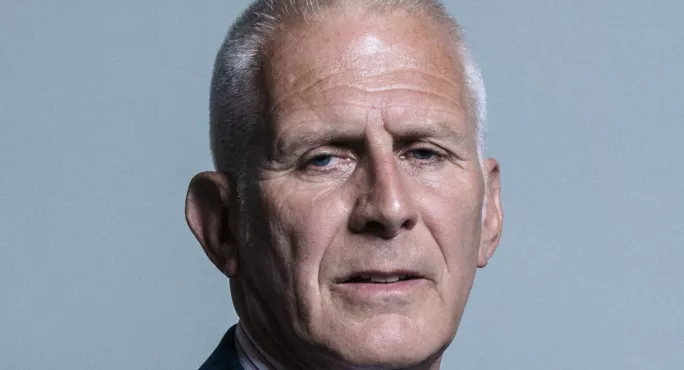Gordon Marsden: Why Right2Learn is right for now

This Thursday at 6pm, via the powers not of Mystic Meg but of Zoom, a virtual conference will take place under the auspices of Right2Learn, the lifelong learning campaign group that got under way last December.
The conference will start with former education secretary David Blunkett, a seminal figure and champion for lifelong learning for over two decades, revisiting in his lecture his groundbreaking Green Paper, The Learning Age, published at the turn of the Millennium, and posing that challenge afresh for the urgent needs of a post-Covid world.
That will be followed by a response from Andreas Schleicher, director of education and skills at the Organisation for Economic Cooperation and Development, who wrote eloquently recently for Tes on the case for lifelong learning. We then have two panels, bringing together key speakers and policymakers from across the sectors, on how lifelong learning must play a central role in the UK’s post-Covid recovery as well as the decade ahead.
Need to know: The Skills and Post-16 Education Bill
Skills bill: £83m to future-proof further education
Labour: Conservative failings on FE impacting NHS
That is why, when planning our inaugural conference, we gave it the title Right to Learn is Right for Now. That title seems more apt than ever, in the wake of local elections highlighting the profile and potential of elected mayors, the launch and detail of the government’s skills bill and the tantalising stage 3 on the road map from lockdown.
One panel asks the question: “What should a new Lifelong Strategy include?” allowing us all to roam over the future for national and local initiatives, including devolution, and new structures of credit transfer and accumulation to build bridges at every stage, cutting across the silos that have bedevilled past initiatives.
The second panel will ask: “Who would a new lifelong learning strategy be for?” That will focus on how the pandemic, and the lost jobs and businesses it has caused, threatens to widen the gaps and inequalities between and within our communities and nations.
A decade-long lifelong learning strategy
That challenge goes far beyond the “left behind” towns and areas. It shines a baleful light across all ages but, particularly, in the service sectors, with huge numbers of people in their twenties to late thirties affected. Other groups include people with disabilities, young carers, the eight million people lacking basic skills, ex-offenders, those with English for speakers of other languages needs, armed forces leavers and sections of the black and minority ethnic communities (all of which the White Paper has barely, if at all, addressed) as well as the tens of thousands of self- employed people left out of Rishi Sunak’s largesse.
In all of this, FE has skin in the game: its history of giving people multiple chances, both for jobs and life fulfilment, make it a critical component in a decade-long lifelong learning strategy.
This conference is a chance to assess how the government is doing with its promises on lifelong learning. Leading figures commenting on the skills bill and its provisions are sounding warnings about the scope of what has been promised.
David Hughes, chief executive of the Association of Colleges, has said that “the Lifetime Skills Guarantee will only work if people can afford to live while studying through a mix of loans, grants and welfare support”.
Tom Bewick, chief executive of the Federation of Awarding Bodies has warned that micromanagement by the Education and Skills Funding Agency of eligibility for the key free level 3 offer will leave out significant swathes of people, and qualifications for future retraining and skilling - concerns Right2Learn has also echoed.
There are huge questions for the future: how will green skills be delivered? How can we ensure skills are lifetime-enabling ones for adult learners, not just for the short-term needs of employers?
With the best will in the world, Whitehall will not solve those questions alone. It needs to work at local level, not just with employers, but with the third sector: trade unions and key public bodies, such as the NHS.
All this requires working across the silos that can strangle the right to learn. Horizontal virtuous collaboration locally and regionally - as well as looking at what other parts of the UK are doing - is more likely to deliver these. The future can be bright but only if place, people, foresight and flexibility are engaged. It’s not just about Whitehall supply, it’s about local and regional demand.
Others, including recent reports from the Federation for Education development, Learning and Work Institute, the Centenary Commission on Adult Education and the College of the Future, as well as the Lifelong Learning Commission’s 2019 report, are all agreed on the need for a sustained strategy.
We know we all stand on the broad shoulders of all who have carried the torch of lifelong learning for many years. That’s why Lord Blunkett’s lecture is being delivered in memory of Bob Fryer, who died last December, and who was at the heart of his Learning Age initiative.
We must look forward, though, as well as looking back. As Lincoln said to a Civil War-torn Congress in 1862: “The dogmas of the quiet past are inadequate to the stormy present. As our case is new, so we must think and act anew.” That’s what we need to do this week.
Gordon Marsden is the former shadow minister for further education and skills, and a co-founder of Right2Learn
You need a Tes subscription to read this article
Subscribe now to read this article and get other subscriber-only content:
- Unlimited access to all Tes magazine content
- Exclusive subscriber-only stories
- Award-winning email newsletters
Already a subscriber? Log in
You need a subscription to read this article
Subscribe now to read this article and get other subscriber-only content, including:
- Unlimited access to all Tes magazine content
- Exclusive subscriber-only stories
- Award-winning email newsletters